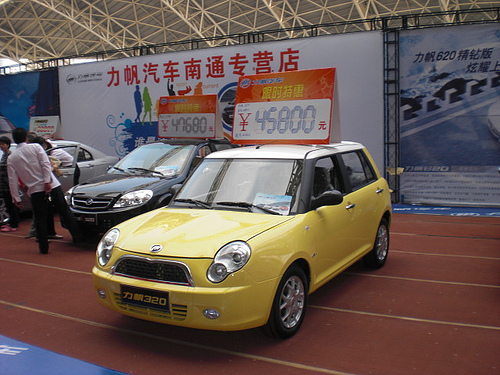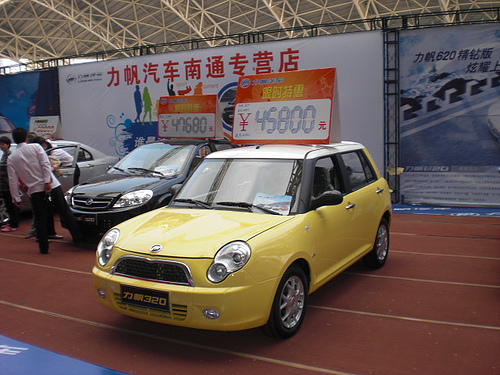 “The fever of buying cars in China is so strong,” Dr. An said.Photo: JuergenAs I wrote the other day, it’s absolutely critical for China’s government to make a commitment to clean energy and sustainability. But the country’s massive population — as well as its status as the world’s largest emitter of greenhouse gases — makes the behavior of its consumers extremely important as well.
“The fever of buying cars in China is so strong,” Dr. An said.Photo: JuergenAs I wrote the other day, it’s absolutely critical for China’s government to make a commitment to clean energy and sustainability. But the country’s massive population — as well as its status as the world’s largest emitter of greenhouse gases — makes the behavior of its consumers extremely important as well.
Recognizing this, the Innovation Center for Energy and Technology (iCET) — a nonprofit think tank with offices in Beijing, Los Angeles, and New York — launched a new website Monday that aims to empower Chinese consumers to take sustainability into account when purchasing automobiles. The website, GreenCarChina.org, has lifecycle sustainability data for 88 car manufacturers, and more will be added as additional cars become available on the Chinese market.
I spoke on Thursday with Dr. Feng An, president and executive director of iCET, about the green car rating system. “It’s a tool to educate consumers,” he said. “The fever of buying cars in China is so strong. New car sales increased 40 percent last year and I think they are going to increase another 40 percent next year. It’s just incredible. In the U.S. and the rest of the world, you have a very mature car market, but in China it’s white hot.”
The problem, he explained, is that consumers aren’t especially well informed. There also just aren’t very many good sources of information on vehicle sustainability — unlike in the United States, where EPA fuel-economy ratings are prominently featured in car commercials.
“There is a lack of education among consumers when it comes to how green the vehicles are. There is no independent reporting about the subject — it’s all PR. There’s no third-party, honest, independent views about vehicles.” That’s exactly where iCET’s Green Car Rating system comes in. “Since we aren’t paid by car companies, we can give very independent advice and information about cars,” he said.
The main challenge will be reaching Chinese consumers, but iCET has an aggressive plan for doing so. “We teamed up with a mobile phone developer to create a downloadable application. I think that will have a big impact,” he said. “And we’ve talked to a lot of media people — TV people and newspaper people — to get the information out.” The group also held a press conference Monday in Cancun, which can be viewed here.
Feng An seems to be the right person to lead this project. In 2002 and 2003, he was an advisor to the Chinese government, laying the groundwork for the country’s first-ever automobile fue- efficiency standards. Those standards are now in phase two, with further modifications already scheduled for the years to come. “The first fuel-economy standard went into place in 2004 and 2005, and the second phase went into place in 2009 and 2010. Now they are starting phase three, which will be implemented between 2012 and 2015,” he said.
With China’s rapidly expanding car market, efforts to educate consumers and potential car-buyers about the sustainability of various makes and models are hugely important. The impact of iCET’s rating system will depend on its ability to reach a critical mass of Chinese consumers, but if it succeeds in doing so, its role in changing consumer behavior could be quite significant.


